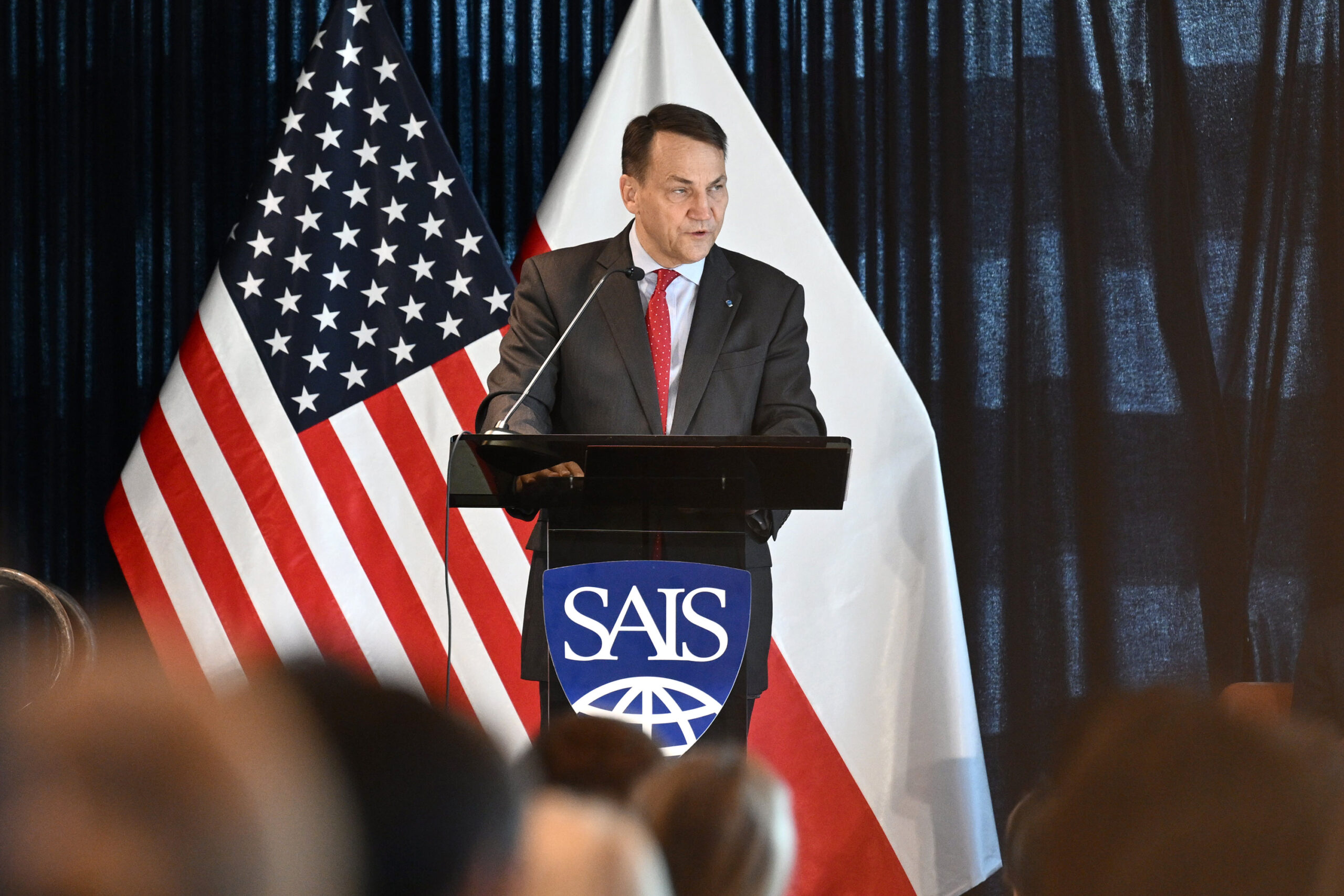Polish foreign affairs minister: Putin miscalculated U.S., European resolve in war with Ukraine
Radosław Sikorski says transatlantic partnership remains critical to combatting Putin’s hostility—and sending a message to other authoritarian regimes

- Image Kaveh Sardari
Key Takeaways
- Poland has played a key role in supporting Ukraine, including calling upon other European nations to increase military spending to aid the fight.
- The country has also taken in 1.6 million Ukrainian refugees, who are mainly housed in Polish homes.
- The parallels between the horrors of World War II and the fight in Ukraine call for even greater unity between the U.S. and Europe today, according to Sikorski.
As Russia’s war in Ukraine grinds on, the transatlantic partnership between the U.S. and Europe is more critical than ever to confronting Vladimir Putin’s relentless assault on democracy and maintaining the international rules-based order, Radosław Sikorski, minister of foreign affairs of the Republic of Poland, said at a recent Johns Hopkins University Bloomberg Center event.
“Russia is, and for the foreseeable future will remain, a danger—not only to individual countries, not only in its immediate neighborhood, but to the transatlantic community and the international rules-based order as a whole,” he said.
Since the conflict erupted two and a half years ago, Poland has emerged as a pivotal force, Sikorski said, not only delivering crucial military aid but also setting the standard for NATO allies and European nations to ramp up defense spending and meet the growing threat head-on.
“Putin was counting on our fatigue, on our lack of resolve and determination, but he miscalculated,” he said. “It is true that far too many European countries, for far too long, ignored the dangers growing at our borders. Today, even long-term skeptics admit Europe needs to become more responsible for the security of its borders and of its region.”
Sikorski’s speech was part of the Johns Hopkins School of Advanced International Studies’ annual Brzezinski Lecture Series, which honors the legacy of Zbigniew Brzezinski as a scholar, policy advisor, and statesman. Brzezinski was a longtime SAIS faculty member who also served as national security adviser to President Jimmy Carter. The Brzezinski Lecture Series brings the world’s most preeminent thinkers to SAIS to address the growing international challenges of our time.
Growing anti-democratic forces
In his remarks, Sikorski also emphasized that confronting Putin’s hostility is not just about halting Russia’s advance, but about sending a powerful message to other autocratic regimes that threaten democracy.
“It is an undisputed fact that anti-democratic forces are growing in strength right now, undermining the current world order.”
“It is an undisputed fact that anti-democratic forces are growing in strength right now, undermining the current world order,” he said. “It is also a fact that neither the United States nor Europe can tackle these challenges alone.”
This transatlantic partnership is key to demonstrating the tangible benefits of democracy and a rules-based global order, he added, showing that “peace pays off, and war is no shortcut to prosperity.”
Humanitarian aid vital
Sikorski also emphasized that military support alone will not win the war. Humanitarian aid is critical, too. That’s why Poland has not only taken in millions of refugees but also granted Ukrainian children the same rights and benefits as their Polish counterparts. It’s also why Sikorski is already preparing Poland and other European nations for the lengthy efforts ahead that will involve not only securing peace but also supporting Ukraine’s post-war reconstruction.
Sikorski said Poland had admitted around 1.6 million refugees since Russia’s attack in February 2022, with Poles opening their homes to those in need. “We can’t be sure how long the war will last or how it will end,” he added. “We must be prepared for a long process.”
Harkening back to the horrors of World War II, Sikorski said the values shared between the U.S. and Europe are increasingly important as the conflict drags on.
“The longer we live in peace, the easier it is to forget this one inconvenient truth that there is only a small step separating our rules-based order from chaos and the unbelievable suffering that it can bring,” he cautioned. “We saw it in Europe 80 years ago, and we are seeing it in Ukraine now.
“Let’s not lose sight of what truly matters—the unique value of transatlantic unity and cooperation. Let’s not lose faith in the values of the democratic world, and let’s not fail those who hope and dream to be part of it.”